Celebrating 35 Years of Unlocking the Potential of Scientific Computing: The MICDE PhD Program at U-M
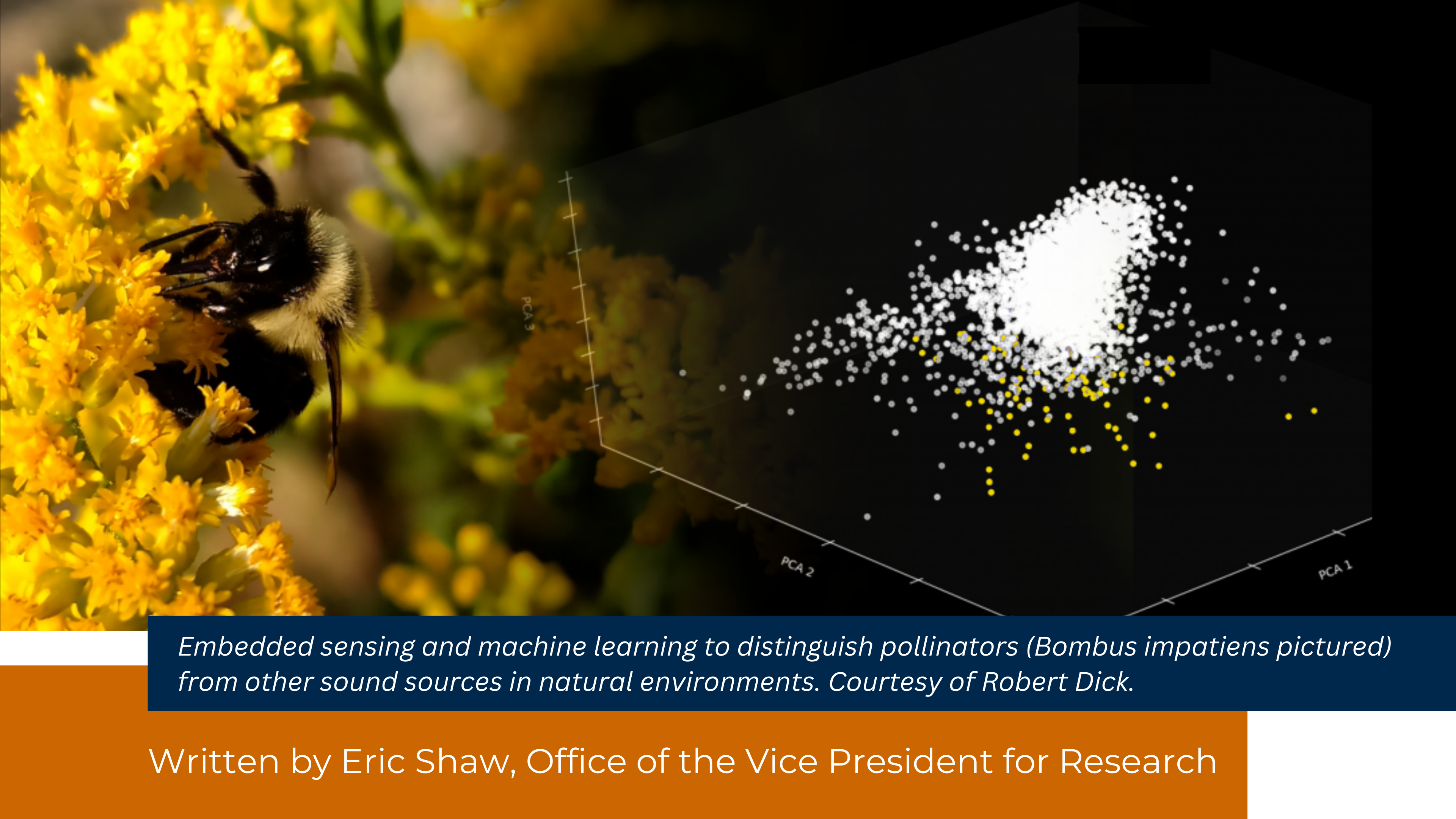
The University of Michigan has long been a trailblazer in scientific computing, and the PhD in Scientific Computing program stands as a testament to this legacy. As the nation’s first PhD program in scientific computing, it was established in 1988 in response to the various reports demonstrating computational science as the third pillar of scientific methodology, along with theory and experimentation and the increasing demand for advanced computational skills across different scientific disciplines. This comprehensive program is designed to equip students with the skills required to excel in computational research, as well as to foster interdisciplinary collaboration between different scientific fields.
Since it became part of the Michigan Institute for Computational Discovery and Engineering (MICDE) in 2013, the PhD in Scientific Computing program has increased significantly, enrolling students from more than 30 different departments across U-M. The program is an excellent opportunity for students seeking to conduct cutting-edge research at the intersection of computational and data science, engineering, and the natural and social sciences. By providing a solid foundation in computational techniques and tools, the program enables students to address complex scientific problems and contribute to advancing knowledge in their respective fields. In this article, we will take a deep dive into the PhD in Scientific Computing program and explore the various components that make it truly unique and valuable.

The importance of scientific computing in modern research
Scientific computing has become an indispensable tool in modern research, enabling scientists and engineers to tackle complex problems that were once considered intractable. By leveraging the power of advanced computational techniques, researchers can model, simulate, and analyze phenomena at unprecedented scales, leading to new insights and discoveries across various scientific disciplines.
One of the key factors driving the increasing importance of scientific computing is the rapid growth of usable data. As experimental and observational technologies continue to advance, researchers are faced with interpreting and explaining experimental findings and phenomena. Scientific computing provides a means to efficiently simulate and model experimental observations, allowing scientists and engineers to extract valuable information and make informed decisions.
Furthermore, scientific computing facilitates the development of predictive models that can help researchers understand and predict the behavior of complex systems under various conditions. These models can be used to test hypotheses, optimize designs, make novel discoveries, and make predictions about future events, ultimately leading to more efficient and effective solutions to scientific problems.
Key components of the PhD in Scientific Computing program
The PhD in Scientific Computing program at the University of Michigan is designed to provide students with a solid foundation in computational methods, as well as specialized knowledge in their chosen scientific discipline. The program consists of several key components, including:
Individualized coursework: Students are required to complete coursework that covers various topics in scientific computing, such as numerical methods, parallel computing, data analysis, machine learning, computational optimization, or numerical partial differential equations. This academic plan is designed to provide a comprehensive understanding of the techniques and tools used in computational research while contributing to specific research questions that the students are working on.
Interdisciplinary research: A vital aspect of the PhD in Scientific Computing program is the emphasis on interdisciplinary research. Students are expected to develop and apply advanced computational techniques to address a specific scientific problem under the guidance of a faculty advisor. This fosters the development of innovative computational solutions that address complex, real-world problems. The culmination of the PhD program is the completion of a research project that significantly contributes to the field of scientific computing.
Networking opportunities: The PhD in Scientific Computing brings together faculty and students from across the U-M community with common computational interests. MICDE affiliated faculty can help students to see the big picture of where their research fits into a larger computational landscape. The PhD seminar series and Scientific Computing Student Club bring PhD in Scientific Computing students from across the university to discuss their standard methods and research problems. MICDE also brings in external speakers for additional networking opportunities.
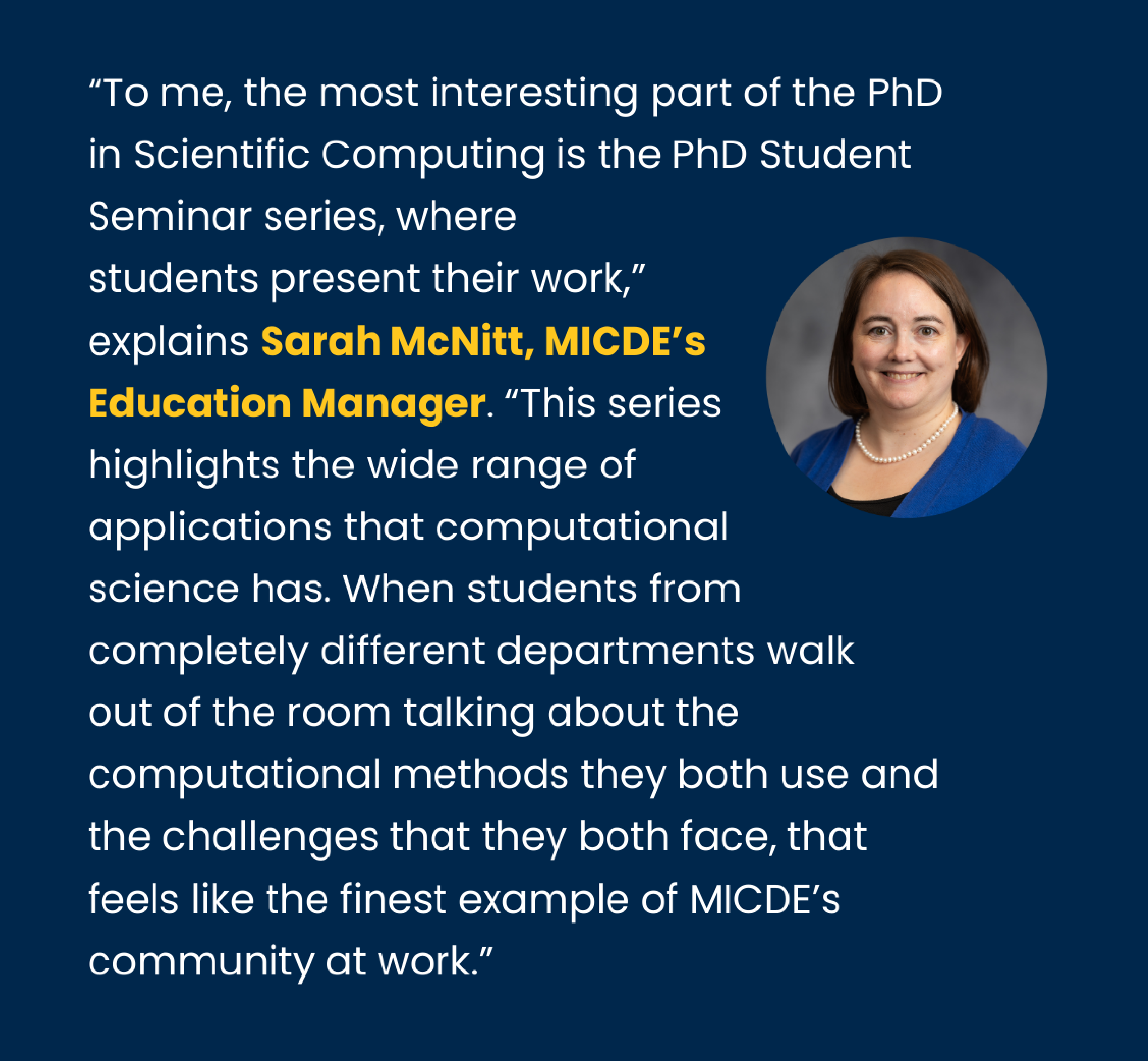
Opportunities for interdisciplinary Collaboration
The University of Michigan is renowned for its collaborative research environment, which provides an ideal setting for students in the PhD in Scientific Computing to engage in interdisciplinary projects. The program encourages students to work on research questions encompassing various scientific domains, such as physics, chemistry, biology, engineering, and social sciences, in order to develop innovative computational solutions for complex problems, such as understanding blood transport, advancing disease diagnosis, processes in extreme conditions to name but a few.
By participating in interdisciplinary research, students in the PhD in Scientific Computing have the opportunity to broaden their knowledge and skill set, as well as to establish valuable connections with researchers from different fields. This collaborative approach not only fosters the development of novel computational techniques but also helps students build a diverse and supportive network that can be invaluable for their future careers.
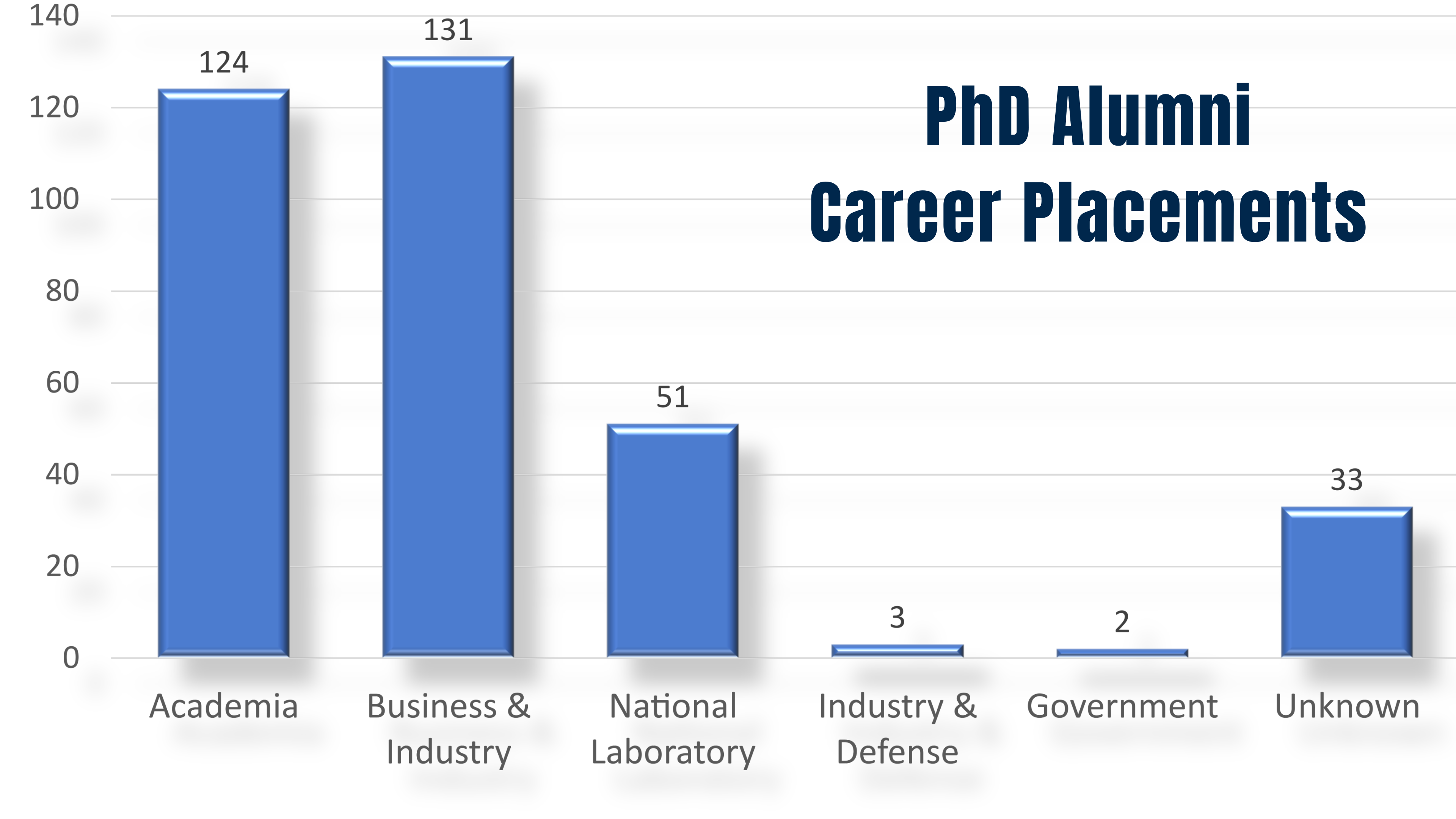
Alumni and their contributions to the field of scientific computing
The MICDE PhD program has produced many successful alumni who have made significant contributions to the field of scientific computing. These graduates have pursued careers in academia, industry, national laboratories, and government, applying their computational skills to address pressing scientific and societal challenges.
For example, one alumnus has developed a computational model to predict the spread of infectious diseases, helping the spread of infectious diseases, helping public health officials devise effective strategies for controlling outbreaks. Another graduate has used advanced data analysis techniques to study the behavior of stock markets, providing valuable insights for investors and policymakers. These stories demonstrate the wide-ranging impact of the MICDE PhD program and the potential of scientific computing to transform our understanding of the world.
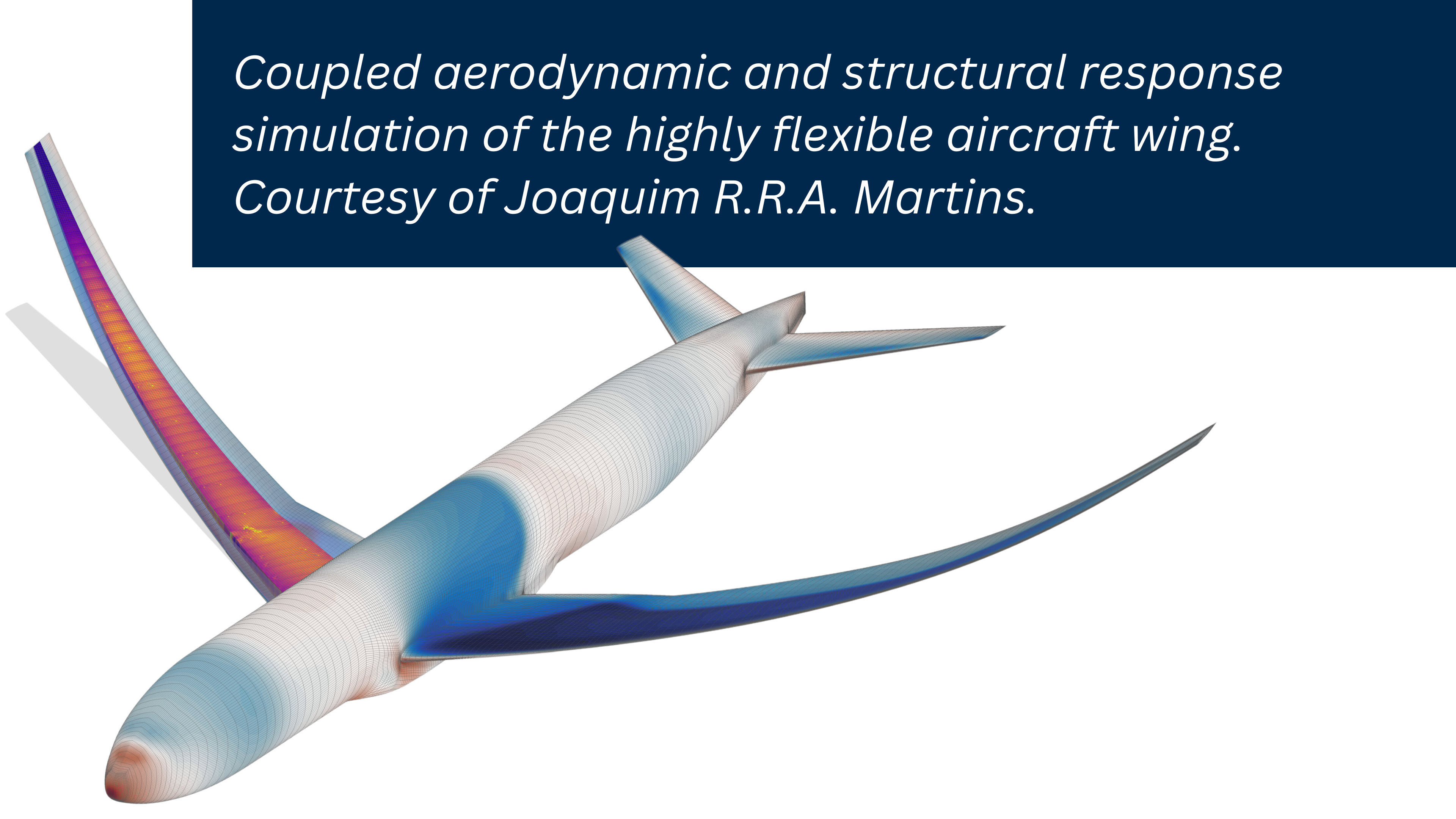
The MICDE Fellowship: A unique aspect of the program
One of the distinguishing features of the institute is the MICDE Fellows, a group of exceptional students selected based on their outstanding academic achievements and research potential. These students receive fixed financial support for their studies and special recognition within the program.
The MICDE Fellows are expected to serve as ambassadors for MICDE, participating in outreach activities and representing the institute at conferences and events. They also play a crucial role in fostering a sense of community among the students in the program, organizing social events, and promoting a collaborative research environment.
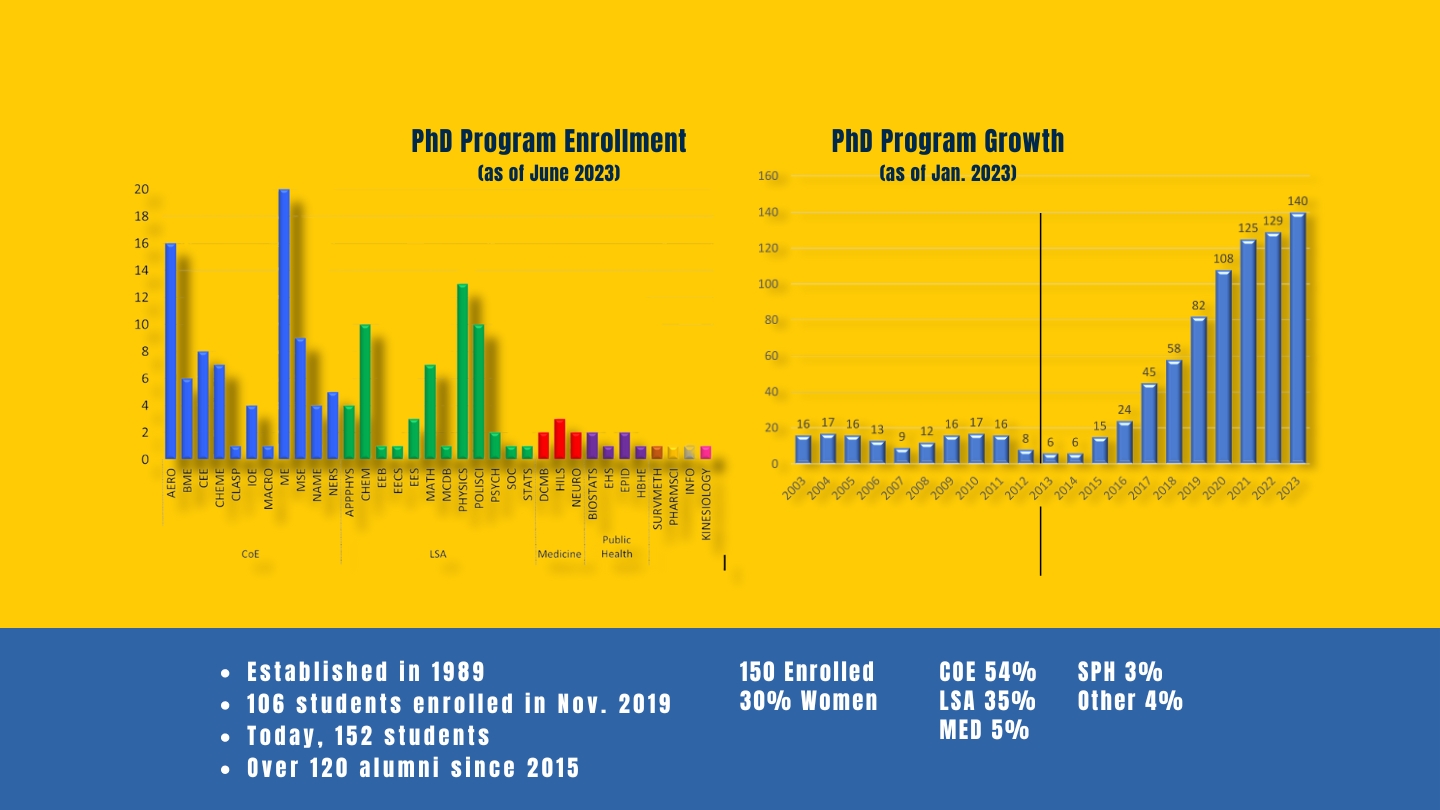
How to apply for the MICDE PhD Program
The PhD in Scientific Computing is a joint degree program, meaning that students must first be accepted into a PhD program in a home department at the University of Michigan before adding on the PhD in Scientific Computing. The selection process for the program is based on a holistic review of each applicant’s qualifications and potential for success in scientific computing. Successful candidates will be offered admission to the program.
Tips for succeeding in the program and beyond
The PhD in Scientific Computing is a demanding and rigorous course of study that requires dedication, determination, and a strong work ethic. To succeed in the program and beyond, students should consider the following tips:
Cultivate strong problem-solving skills:
Scientific computing is inherently about tackling complex problems, and students should strive to develop their ability to think critically and devise innovative solutions.
Master the art of collaboration: As the program emphasizes interdisciplinary research, students should be prepared to collaborate with researchers from different scientific fields. Developing strong communication and collaboration skills can help students work effectively with others to achieve their research goals.
Stay informed: Scientific computing is a rapidly evolving field, and staying abreast of the latest developments and trends can help students remain competitive and informed. Attending conferences, reading academic papers, and participating in workshops can help students stay up-to-date with the latest advancements in the field.
Build a strong network: Establishing connections with other researchers and professionals in the field can be invaluable for students in the PhD program and beyond. Building a solid network can provide opportunities for collaboration, mentorship, and career advancement.
Are you interested in pursuing a PhD in Scientific Computing at the University of Michigan? Visit the MICDE website to learn more about the program and the application process. Unlock your potential and make a difference in the world of scientific computing!
The future of the scientific computing program at U-M
The PhD in Scientific Computing at the University of Michigan represents a unique opportunity for students seeking to conduct cutting-edge research at the intersection of computational and data science, engineering, and the natural and social sciences. By providing a solid foundation in computational methods and specialized knowledge in their chosen scientific discipline, the program equips students to address intricate scientific problems and contribute to advancing the knowledge in their respective fields.
The program’s interdisciplinary nature, along with the emphasis on collaboration and innovation, makes it an ideal choice for students seeking to make a real-world impact through their research. The success stories of alumni demonstrate the potential of scientific computing to transform our understanding of the world and address pressing scientific and societal challenges.
As the demand for advanced computational skills continues to grow in various scientific disciplines, the PhD in Scientific Computing program stands poised to play a leading role in shaping the future of scientific computing. With its commitment to fostering interdisciplinary collaboration and providing students with the tools and resources they need to succeed, the program will continue producing exceptional graduates who make a difference in the world.